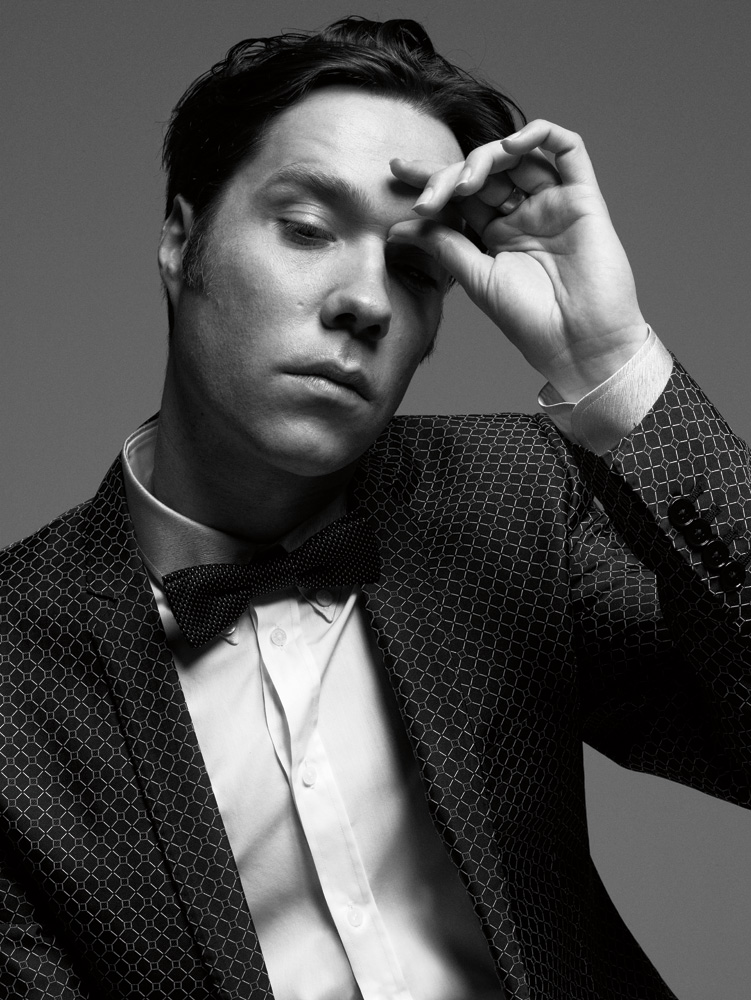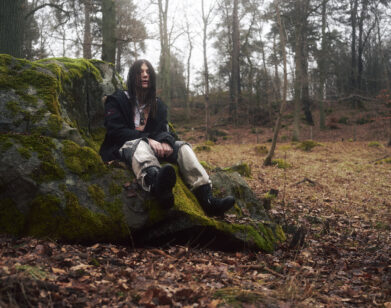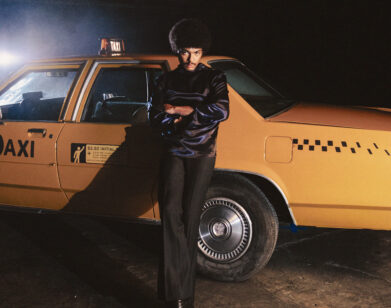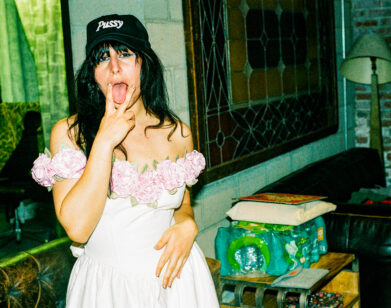Rufus Wainwright

After releasing six albums, appearing in a handful of films, and single-handedly resurrecting the songbook of Judy Garland, Rufus Wainwright took the next logical step: He spent three years writing a two-hour opera. But Prima Donna, which will premiere this July at the Manchester International Festival in England, isnâ??t the only bizarre career move Wainwright has taken lately. He just wrapped up work in Berlin on a musical adaptation of Shakespearean sonnets with director Robert Wilson. On that project, his feelings are mixed: â??It was a bit like World War II over there,â? he laughs, â??which is to be expected, I guess, because thatâ??s where World War II took place.â? But Wainwright considers it â??a good booster shotâ? for what heâ??ll experience once he unveils Prima Donna. The operaâ??s main character is Régine Saint Laurent, a diva who disappears for six years following a tragedy on the night of a premiere. The story begins on the morning of her return to the stage. Saint Laurent is seizing her moment, much like the 35-year-old Wainwright, a lifelong opera buff who accelerated his artistic plans once his mother became sick with cancer. â??Once illness strikes, you realize thereâ??s not a lot of time for you to do what you really need to do,â? he says. â??And thereâ??s no time like the present.â?
CARYN GANZ: The star of your opera is literally a diva. Were you drawing on anyone specific?
RUFUS WAINWRIGHT:Well, the closest one would be [Sunset Boulevardâ??s] Norma Desmond, or actual old silent-movie stars who had it all taken away from them. I suppose one could argue that there were Madonna moments. Some peoplethink my opera is about her early career in Detroit or somethingâ??like, Pre-Madonna.
GANZ: Divas loom large in high culture, but also in low culture like reality shows. Did both sides of that persona inspire you?
WAINWRIGHT: There is actually a great book called Prima Donna by Rupert -Christiansen that deconstructs the myth. In fact, many of the women who were prima donnas were feminists and incredible forces for their time. You had to be an over-the-top, demanding, dramatic figure in order to progress as a woman in Europe over the last few hundred years. Now people say, â??Youâ??re being such a prima donna,â? meaning youâ??re being hard to deal with or crazy. Itâ??s a bit sexist.
GANZ: Did you set out to write a feminist opera?
WAINWRIGHT: Itâ??s funny, now that you mention itâ??I didnâ??t set out to do that. But I was keenly aware that I didnâ??t want to draw on too many typically doomed aspects of the fated singer. Whether itâ??s Judy Garland or Norma Desmond, there is this tragic quality to older women that one can revel in, and you want it to be more three-dimensional than that. So it was important for the character to be strong and resilient, because there are so many victims in opera.
GANZ: The opera also lasers in on the idea of the comeback, which, from Mickey Rourke to Britney Spears, is one of the most compelling tropes in our culture right now.
WAINWRIGHT: Well, in a way Iâ??m kind of making my own comeback. Iâ??ve been in the business now for 20 years. Iâ??ve had my ups and downs, and I definitely have a senseâ??in America, especiallyâ??that once youâ??ve made your mark and gotten your Rolling Stone piece and your Grammy nomination, that theyâ??re on to the next piece of meat, and they donâ??t necessarily like to follow the twistsand turns of an artistic career. Throwing an opera at them is something they have to notice. Thereâ??s nothing subtle about it. I donâ??t know if it will be my big comeback, but I think it is a statementâ??that I am a self-sustaining, vibrant, long-term artist, and Iâ??m not going away! And if you donâ??t give me credit, then the musical gods will!
GANZ: As everything about the music industry gets more digital, youâ??re moving in the opposite directionâ??opera and Shakespeare . . .
WAINWRIGHT: I definitely have a Ludditeâ??s approach to whatâ??s going on. I find that as I get older, I get stupider. For me, the iPhone is harder than reading Faust. Iâ??ve been hanging out a bit with Lou Reed, and heâ??s the complete opposite. Heâ??s into technology and is kind of like a toddler, compared to me, whoâ??s like an old 19th-century widow or something.
GANZ: Your opera is in French, which is one reason you didnâ??t end up at the Met. What can you do in French that you canâ??t do in English?
WAINWRIGHT: The operas I listen to arenâ??t in English, and I want to listen to my opera after Iâ??m done with it. I want to have the desire to play it on the stereo. To me, the language is part of the mystery. Growing up, for years and years I had no idea what the plots of operas were, and thatâ??s part of what fascinated meâ??I could make them up and learn bits and pieces of what was going on over time. Thereâ??s something about it being always a step away that makes it more fun to chase.
GANZ: I read in a New York Times profile that you saw a production of Straussâ??s Elektra at the Met high on drugs. Do you recommend people come to your opera in a similar state?
WAINWRIGHT: Well, my great lesson with that was I went to the same production twiceâ??once completely high and once completely soberâ??and both times were equally wonderful. Opera is above drugs and alcohol and you donâ??t have to be fucked up to either write it or see it. Itâ??s about transcendentalism. Itâ??s not of this world. So Iâ??d suggest not being fucked up, because youâ??re just wasting your money.
Photo above: Rufus Wainwright in New York, March 2009.All clothing: Dolce & Gabbana. Grooming products: Clarins Men, including Moisture Balm. Fragrance: Dolce & Gabbana The One for Men. Styling: Michael Philouze/Michele Filomeno. Hair: Kevin Ryan/Art + Commerce. Makeup: Osvaldo Salvatierra/Streeters. Special thanks: Fast Ashleys.
Caryn Ganz is a New York music critic and deputy editor of RollingStone.com.
Find upcoming tour dates at Rufus Wainwright’s official Web site.






